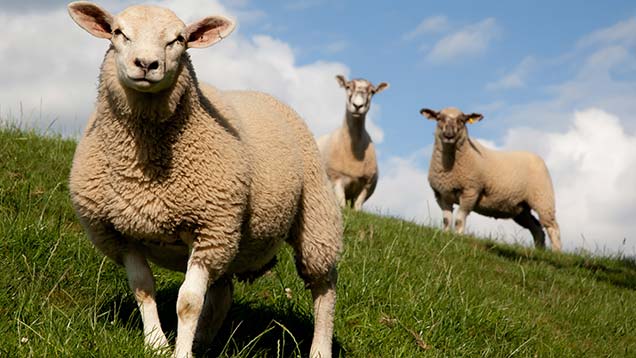‘First’ commercial sheep progeny test established in UK
 © Anthea Kitching
© Anthea Kitching Lamb performance data could soon be available by when selecting rams as a result of a pioneering, new project.
The sire of slaughter lambs is not usually known in this country, but the RamCompare project will start will enable sire information to be collected.
It is hoped the inclusion of this commercial data in genetic evaluations will help drive the genetic improvement of the UK sheep industry.
The RamCompare project, which begins in May, will work throughout the supply chain to get lamb performance data from farms and abattoirs included in genetic evaluation.
See also: Study shows massive gap in performance of flocks
The two-year project is a pilot to trial strategies for data capture and will be similar to central progeny tests that are taking place in Australia, New Zealand and Ireland.
It will be financed by Eblex, Hybu Cig Cymru – Meat Promotion Wales (HCC), Quality Meat Scotland and Agrisearch, with support provided by the Sainsbury’s ‘Big Data’ Agriculture R&D Grant Scheme, Randall Parker Foods, Dunbia and Scotland’s Rural College (SRUC).
The first stage of the project will involve developing a network of six commercial farms that will use artificial insemination (AI) and single-sire mating to produce a crop of over 500 lambs a farm a year.
In total 67 rams from five breeds – Texel, Suffolk, Charollais, Hampshire Down and Meatlinc – will be tested across these flocks during the 2016 and 2017 lambing seasons. The rams used will be within the top 20% of their breed for EBVs and the AI sires will have good linkage with other pedigree flocks.
Data from their lambs will be collected through to slaughter.
This data will be evaluated to see whether its inclusion in the rams’ genetic evaluations identifies differences between sires and improves their accuracy.
A ranking of the tested rams, based on commercially important traits, will be generated at the end of 2017.
Eblex breeding specialist Sam Boon says: “This will be the first time a commercial progeny test has been established in the UK on this scale. It will enable the performance of progeny by different rams to be compared under commercial conditions; therefore it will be an important step in allowing animals to be compared irrespective of breed.
“It is also a truly unique project as it involves partners from right along the supply chain.
“The ambition is that, in time, one genetic analysis will be produced that will encompass data for all terminal sire breeds.”
Further information will be available at www.ramcompare.com as the project gets under way. You can also follow @RamCompare on Twitter for updates.
